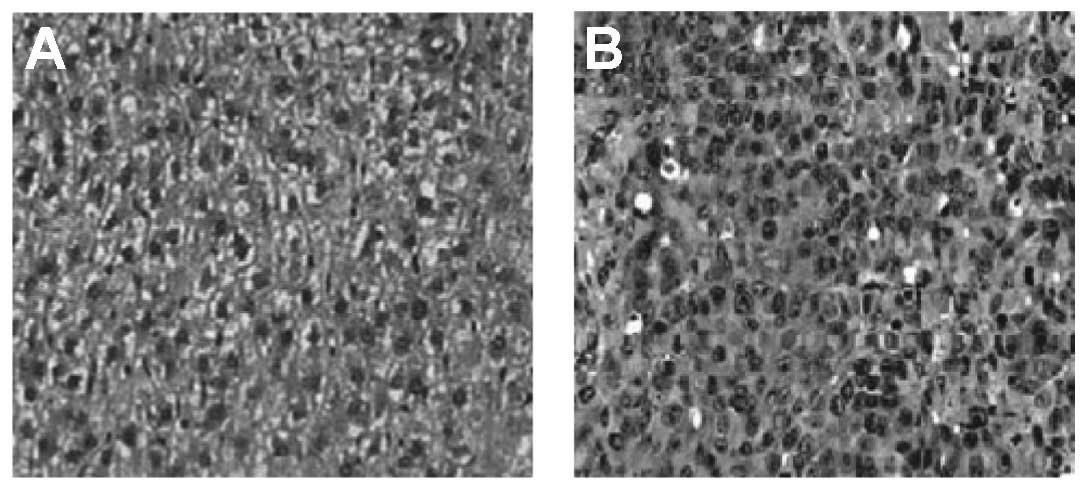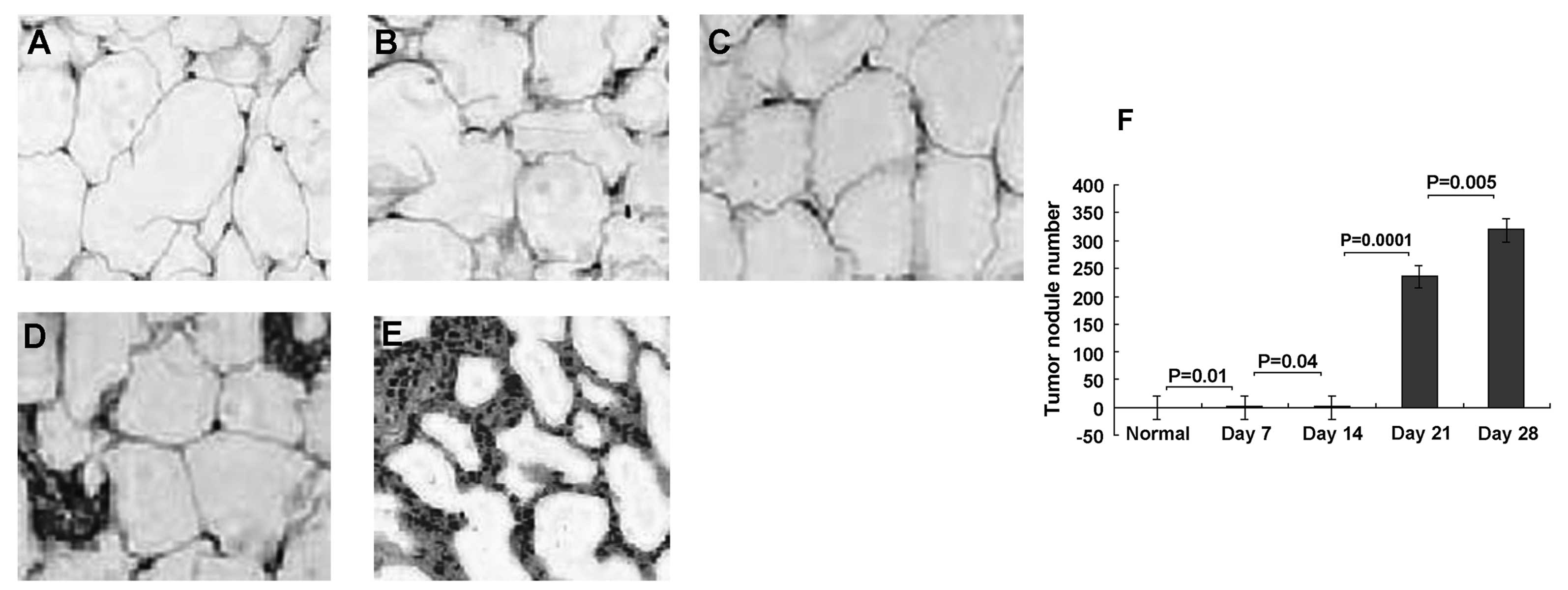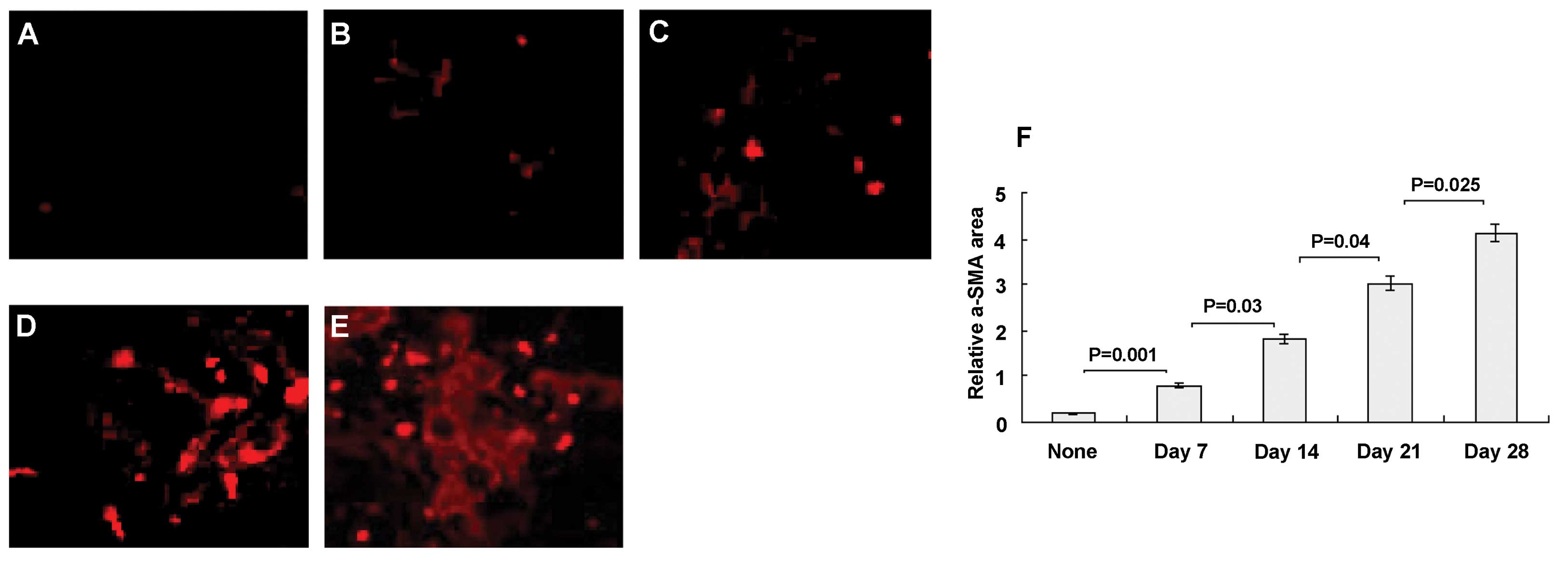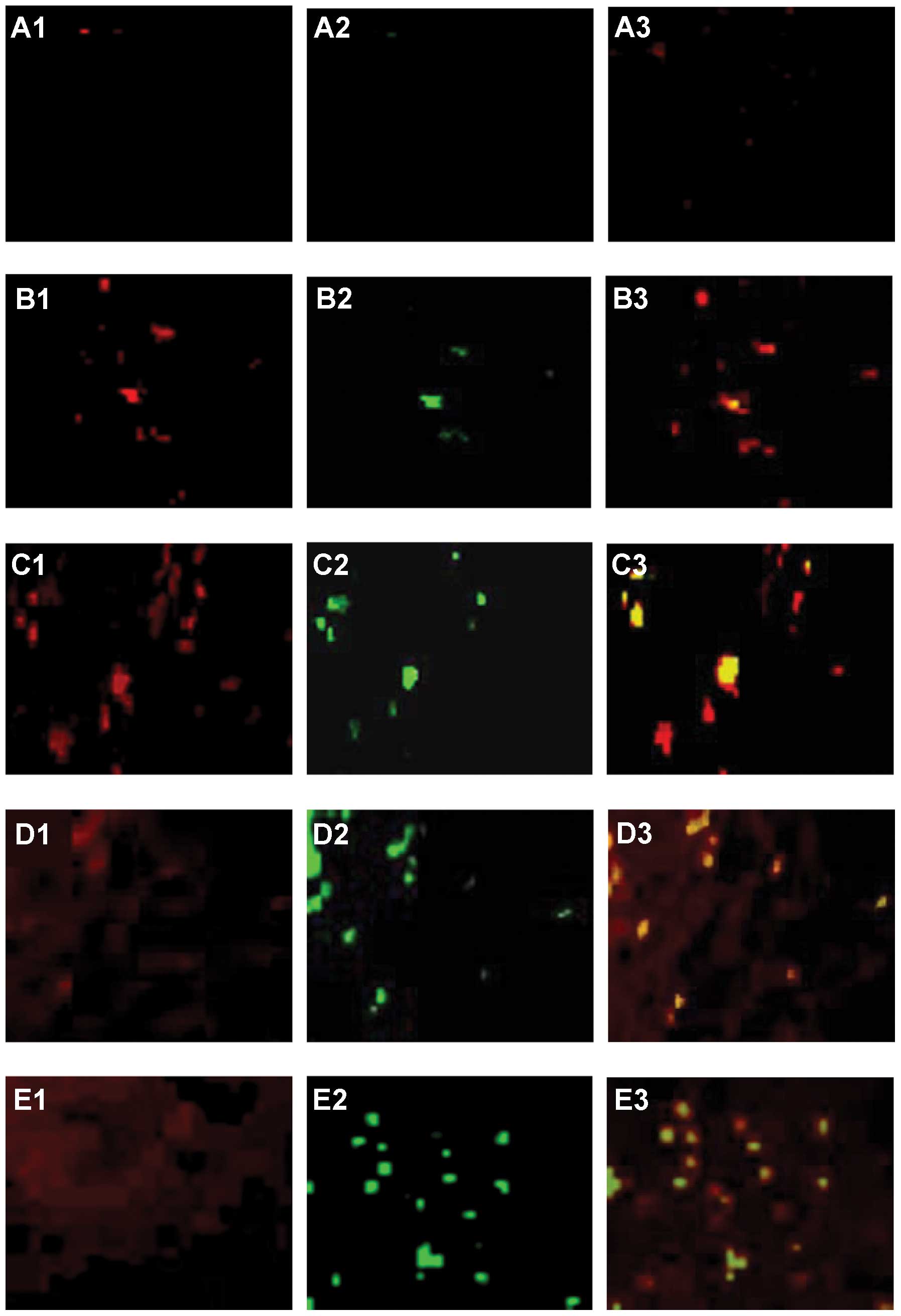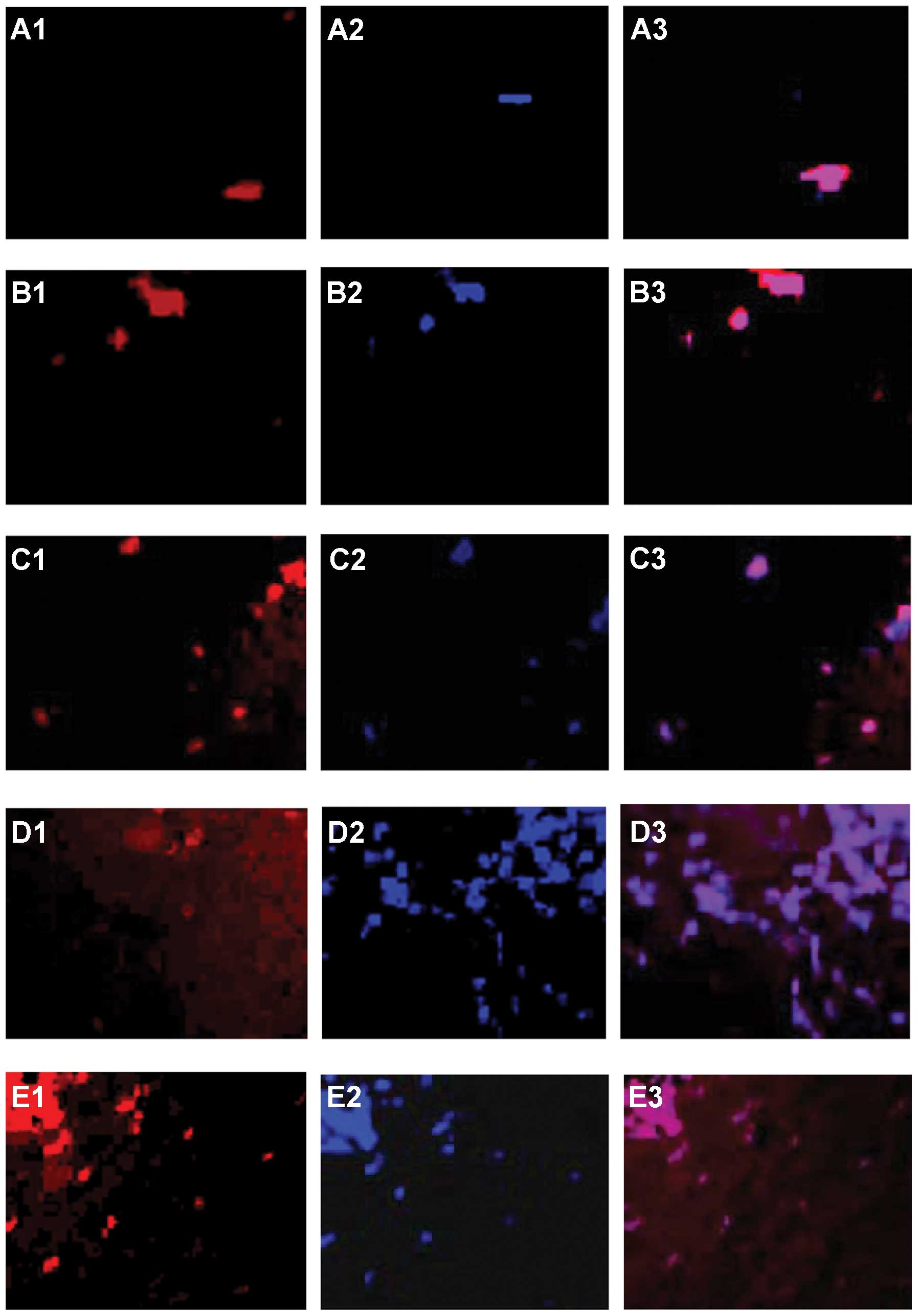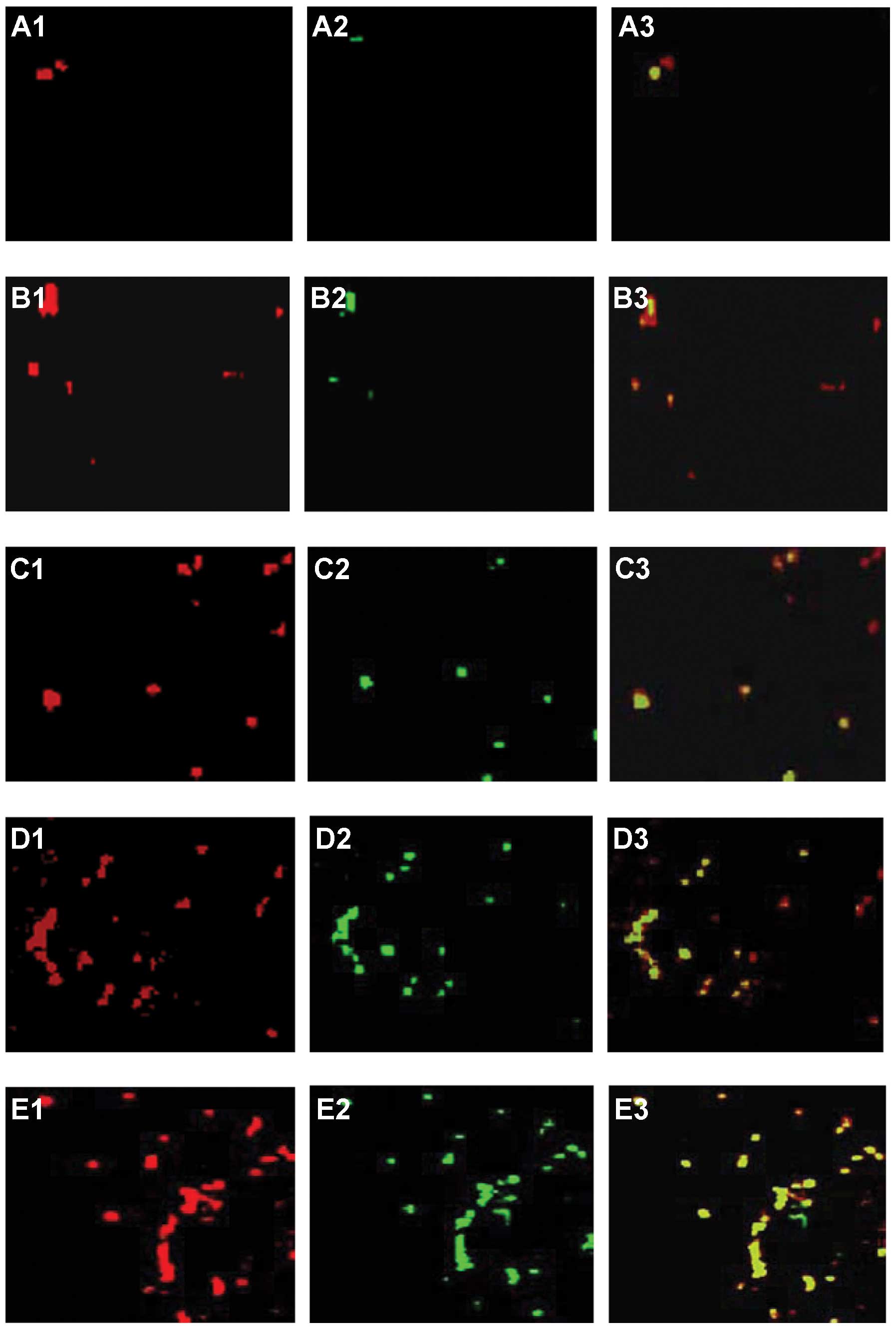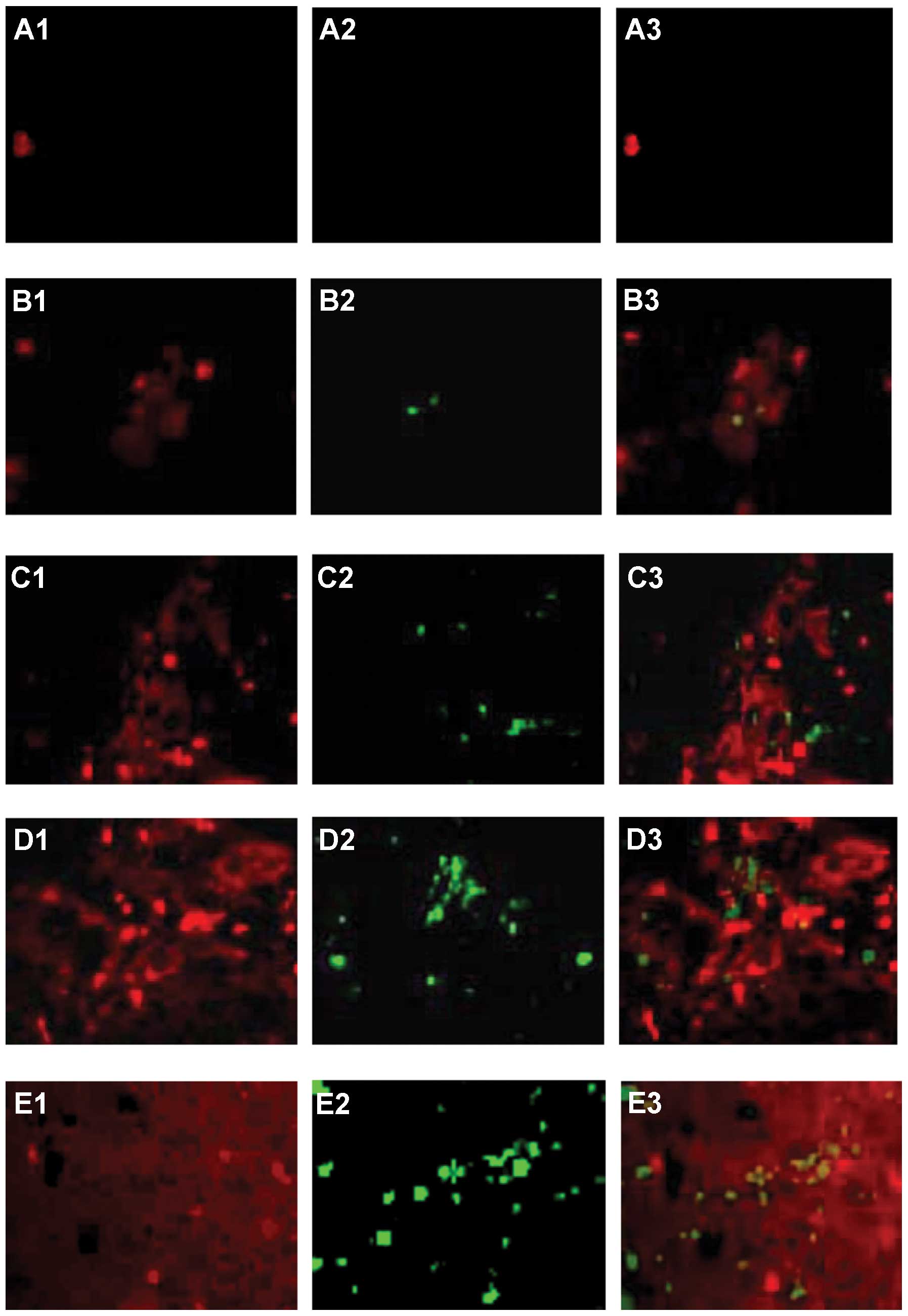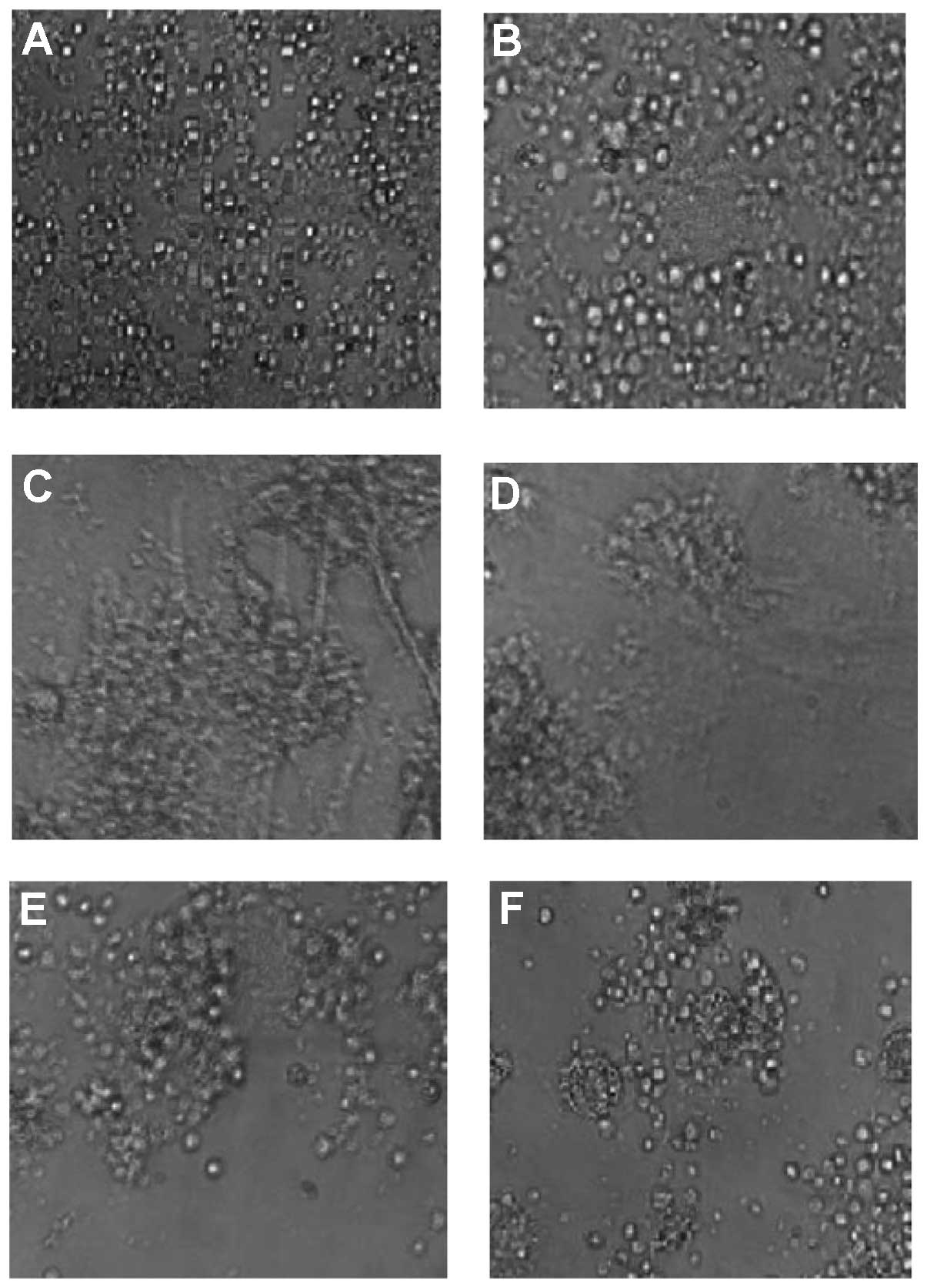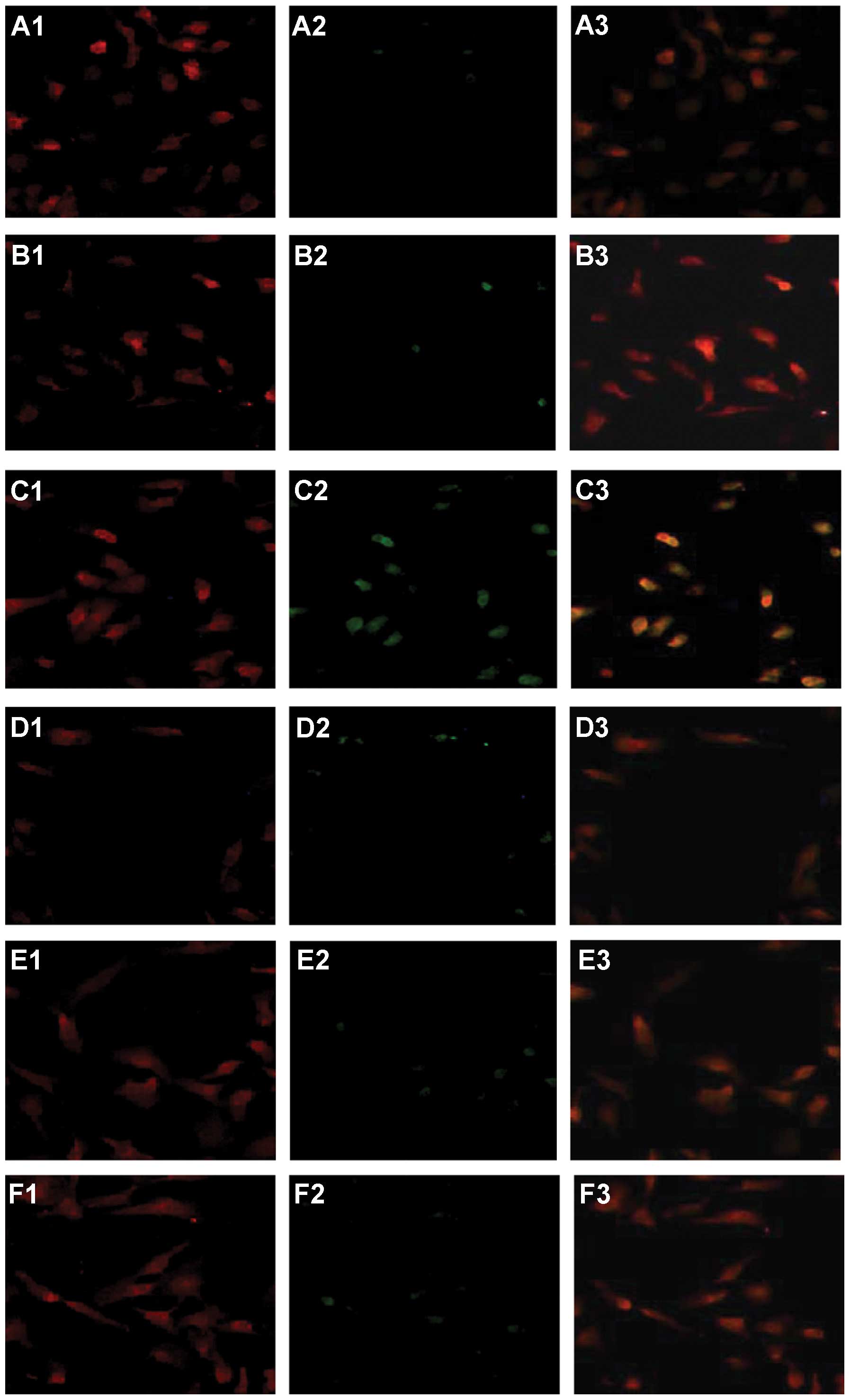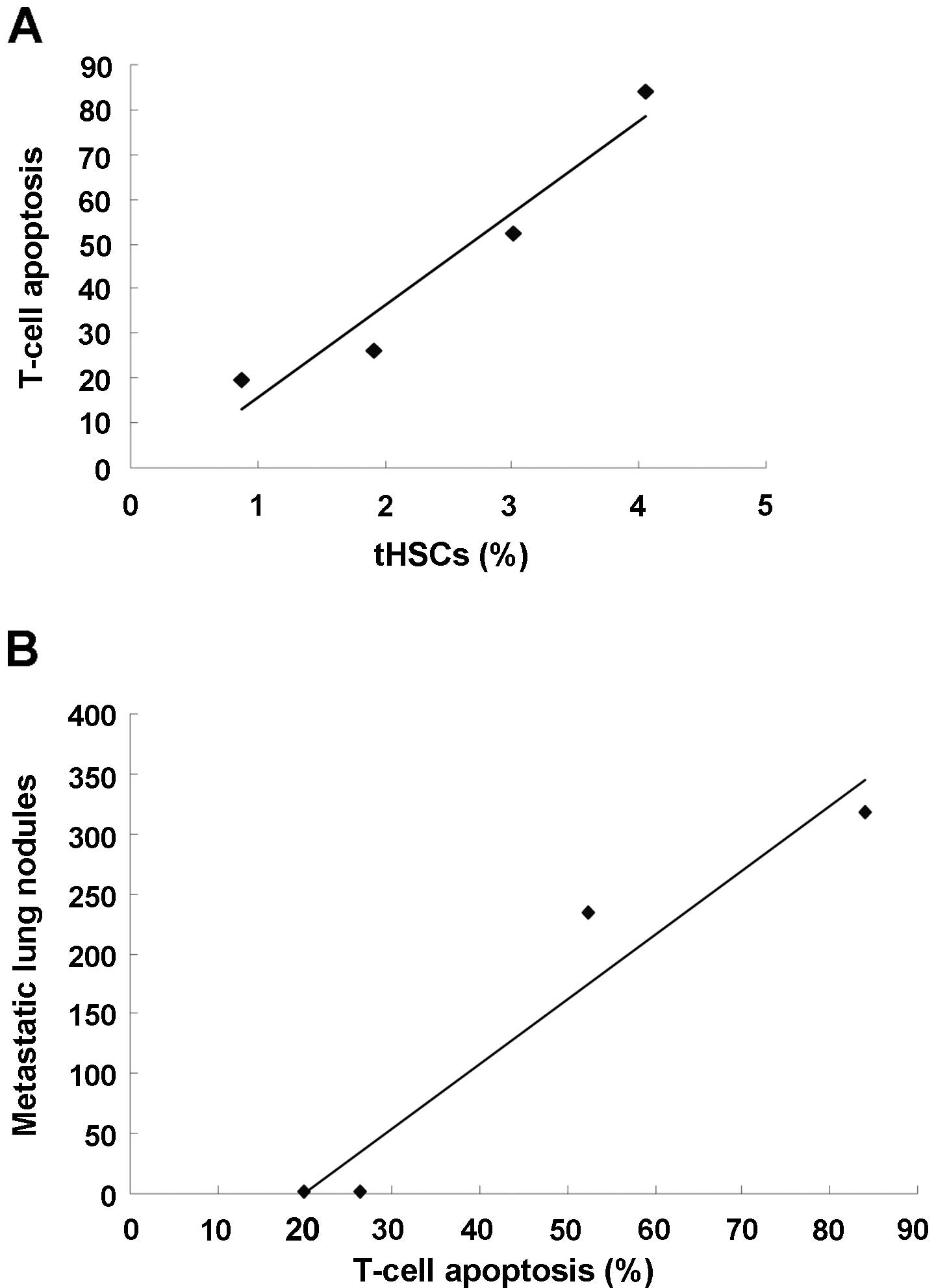|
1
|
Unitt E, Rushbrook SM, Marshall A, et al:
Compromised lymphocytes infiltrate hepatocellular carcinoma: the
role of T-regulatory cells. Hepatology. 41:722–730. 2005.
View Article : Google Scholar : PubMed/NCBI
|
|
2
|
Mehal WZ, Azzaroli F and Crispe IN:
Immunology of the healthy liver: old questions and new insights.
Gastroenterology. 120:250–260. 2001. View Article : Google Scholar : PubMed/NCBI
|
|
3
|
Friedman SL: Molecular regulation of
hepatic fibrosis, an integrated cellular response to tissue injury.
J Biol Chem. 275:2247–2250. 2000. View Article : Google Scholar : PubMed/NCBI
|
|
4
|
Friedman SL: Liver fibrosis - from bench
to bedside. J Hepatol. 38:S38–S53. 2003. View Article : Google Scholar
|
|
5
|
Knittel T, Dinter C, Kobold D, et al:
Expression and regulation of cell adhesion molecules by hepatic
stellate cells (HSC) of rat liver: involvement of HSC in
recruitment of inflammatory cells during hepatic tissue repair. Am
J Pathol. 154:153–167. 1999. View Article : Google Scholar : PubMed/NCBI
|
|
6
|
Schwabe RF, Schnabl B, Kweon YO and
Brenner DA: CD40 activates NF-κB and c-Jun N-terminal kinase and
enhances chemokine secretion on activated human hepatic stellate
cells. J Immunol. 166:6812–6819. 2001.
|
|
7
|
Kobayashi S, Seki S, Kawada N, et al:
Apoptosis of T cells in the hepatic fibrotic tissue of the rat: a
possible inducing role of hepatic myofibroblast-like cells. Cell
Tissue Res. 311:353–364. 2003.PubMed/NCBI
|
|
8
|
Muhanna N, Horani A, Doron S and Safadi R:
Lymphocyte-hepatic stellate cell proximity suggests a direct
interaction. Clin Exp Immunol. 148:338–347. 2007. View Article : Google Scholar : PubMed/NCBI
|
|
9
|
Yu MC, Chen CH, Liang X, et al: Inhibition
of T-cell responses by hepatic stellate cells via B7-H1-mediated
T-cell apoptosis in mice. Hepatology. 40:1312–1321. 2004.
View Article : Google Scholar : PubMed/NCBI
|
|
10
|
Chen CH, Kuo LM, Chang Y, et al: In vivo
immune modulatory activity of hepatic stellate cells in mice.
Hepatology. 44:1171–1181. 2006. View Article : Google Scholar : PubMed/NCBI
|
|
11
|
Kurogi M, Nakashima O, Miyaaki H, Fujimoto
M and Kojiro M: Clinicopathological study of scirrhous
hepatocellular carcinoma. J Gastroenterol Hepatol. 21:1470–1477.
2006.PubMed/NCBI
|
|
12
|
Yang R, Rescorla FJ, Reilly CR, et al: A
reproducible rat liver cancer model for experimental therapy:
introducing a technique of intrahepatic tumor implantation. J Surg
Res. 52:193–198. 1992. View Article : Google Scholar : PubMed/NCBI
|
|
13
|
Freise CE, Liu T, Ascher NL and Roberts
JP: Hepatotoxins and liver transplantation decrease pulmonary
metastases in rats with hepatoma. J Surg Res. 64:198–202. 1996.
View Article : Google Scholar : PubMed/NCBI
|
|
14
|
Forbes SJ, Russo FP, Rey V, et al: A
significant proportion of myofibroblasts are of bone marrow origin
in human liver fibrosis. Gastroenterology. 126:955–963. 2004.
View Article : Google Scholar : PubMed/NCBI
|
|
15
|
Sham RL, Packman CH, Abboud CN and
Lichtman MA: Signal transduction and the regulation of actin
conformation during myeloid maturation: studies in HL60 cells.
Blood. 77:363–370. 1991.PubMed/NCBI
|
|
16
|
Ogawa T, Tateno C, Asahina K, et al:
Identification of vitamin A-free cells in a stellate cell-enriched
fraction of normal rat liver as myofibroblasts. Histochem Cell
Biol. 127:161–174. 2007. View Article : Google Scholar : PubMed/NCBI
|
|
17
|
Ikeda K, Wakahara T, Wang YQ, Kadoya H,
Kawada N and Kaneda K: In vitro migratory potential of rat
quiescent hepatic stellate cells and its augmentation by cell
activation. Hepatology. 29:1760–1767. 1999. View Article : Google Scholar : PubMed/NCBI
|
|
18
|
Lu L, McCaslin D, Starzl TE and Thomson
AW: Bone marrow-derived dendritic cell progenitors (NLDC
145+, MHC class II+, B7-1dim,
B7-2−) induce alloantigen-specific hyporesponsiveness in
murine T lymphocytes. Transplantation. 60:1539–1545.
1995.PubMed/NCBI
|
|
19
|
Lee JI, Paik YH, Lee KS, et al: A
peroxisome-proliferator activated receptor-γ ligand could regulate
the expression of leptin receptor on human hepatic stellate cells.
Histochem Cell Biol. 127:495–502. 2007.
|
|
20
|
Witz IP and Levy-Nissenbaum O: The tumor
microenvironment in the post-PAGET era. Cancer Lett. 242:1–10.
2006. View Article : Google Scholar : PubMed/NCBI
|
|
21
|
Kalluri R and Zeisberg M: Fibroblasts in
cancer. Nat Rev Cancer. 6:392–401. 2006. View Article : Google Scholar
|
|
22
|
Pinzani M, Rombouts K and Colagrande S:
Fibrosis in chronic liver diseases: diagnosis and management. J
Hepatol. 42:S22–S36. 2005. View Article : Google Scholar
|
|
23
|
D’Ovidio KL, Trucksess MW, Devries JW and
Bean G: Effects of irradiation on fungi and fumonisin B(1) in corn,
and of microwave-popping on fumonisins in popcorn. Food Addit
Contam. 24:735–743. 2007.PubMed/NCBI
|
|
24
|
Winau F, Hegasy G, Weiskirchen R, et al:
Ito cells are liver-resident antigen-presenting cells for
activating T cell responses. Immunity. 26:117–129. 2007. View Article : Google Scholar : PubMed/NCBI
|
|
25
|
Milik AM, Buechner-Maxwell VA, Sonstein J,
et al: Lung lymphocyte elimination by apoptosis in the murine
response to intratracheal particulate antigen. J Clin Invest.
99:1082–1091. 1997. View Article : Google Scholar : PubMed/NCBI
|
|
26
|
Van Parijs L and Abbas AK: Homeostasis and
self-tolerance in the immune system: turning lymphocytes off.
Science. 280:243–248. 1998.PubMed/NCBI
|
|
27
|
Amann T, Bataille F, Spruss T, et al:
Activated hepatic stellate cells promote tumorigenicity of
hepatocellular carcinoma. Cancer Sci. 100:646–653. 2009. View Article : Google Scholar : PubMed/NCBI
|
|
28
|
Parmiani G and Anichini A: T cell
infiltration and prognosis in HCC patients. J Hepatol. 45:178–181.
2006. View Article : Google Scholar : PubMed/NCBI
|
|
29
|
Hirano S, Iwashita Y, Sasaki A, Kai S,
Ohta M and Kitano S: Increased mRNA expression of chemokines in
hepatocellular carcinoma with tumor-infiltrating lymphocytes. J
Gastroenterol Hepatol. 22:690–696. 2007.PubMed/NCBI
|
|
30
|
Saio M, Radoja S, Marino M and Frey AB:
Tumor-infiltrating macrophages induce apoptosis in activated CD8(+)
T cells by a mechanism requiring cell contact and mediated by both
the cell-associated form of TNF and nitric oxide. Immunol.
167:5583–5593. 2001.PubMed/NCBI
|
|
31
|
Smith DJ, McGuire MJ, Tocci MJ and Thiele
DL: IL-1 beta convertase (ICE) does not play a requisite role in
apoptosis induced in T lymphoblasts by Fas-dependent or
Fas-independent CTL effector mechanisms. J Immunol. 158:163–170.
1997.PubMed/NCBI
|
|
32
|
Faisal W, Symonds P, Panjwani S, Heng Y
and Murray JC: Cell-surface associated
p43/endothelial-monocyte-activating-polypeptide-II in
hepatocellular carcinoma cells induces apoptosis in T-lymphocytes.
Asian J Surg. 30:13–22. 2007. View Article : Google Scholar
|
|
33
|
Abraham D, Bou-Gharios G, Tulip G, Sumner
H and Olsen I: Regulation of CD2-mediated heterotypic interactions
of murine T lymphocytes. Cell Immunol. 156:342–356. 1994.
View Article : Google Scholar : PubMed/NCBI
|
|
34
|
Crowston JG, Salmon M, Khaw PT and Akbar
AN: T-lymphocyte-fibroblast interactions. Biochem Soc Trans.
25:529–531. 1997.PubMed/NCBI
|
|
35
|
Yarovinsky TO and Hunninghake GW: Lung
fibroblasts inhibit activation-induced death of T cells through
PGE(2)-dependent mechanisms. Am J Physiol Lung Cell Mol Physiol.
281:L1248–L1256. 2001.PubMed/NCBI
|
|
36
|
Kristensen DB, Kawada N, Imamura K, et al:
Proteome analysis of rat hepatic stellate cells. Hepatology.
32:268–277. 2000. View Article : Google Scholar : PubMed/NCBI
|
|
37
|
Santucci L, Fiorucci S, Cammilleri F,
Servillo G, Federici B and Morelli A: Galectin-1 exerts
immunomodulatory and protective effects on concanavalin A-induced
hepatitis in mice. Hepatology. 31:399–406. 2000. View Article : Google Scholar : PubMed/NCBI
|
|
38
|
Chen D, McKallip RJ, Zeytun A, et al:
CD44-deficient mice exhibit enhanced hepatitis after concanavalin A
injection: evidence for involvement of CD44 in activation-induced
cell death. J Immunol. 166:5889–5897. 2001. View Article : Google Scholar : PubMed/NCBI
|
|
39
|
Hellerbrand, Wang SC, Tsukamoto H, Brenner
DA and Rippe RA: Expression of intracellular adhesion molecule 1 by
activated hepatic stellate cells. Hepatology. 24:670–676. 1996.
View Article : Google Scholar : PubMed/NCBI
|















